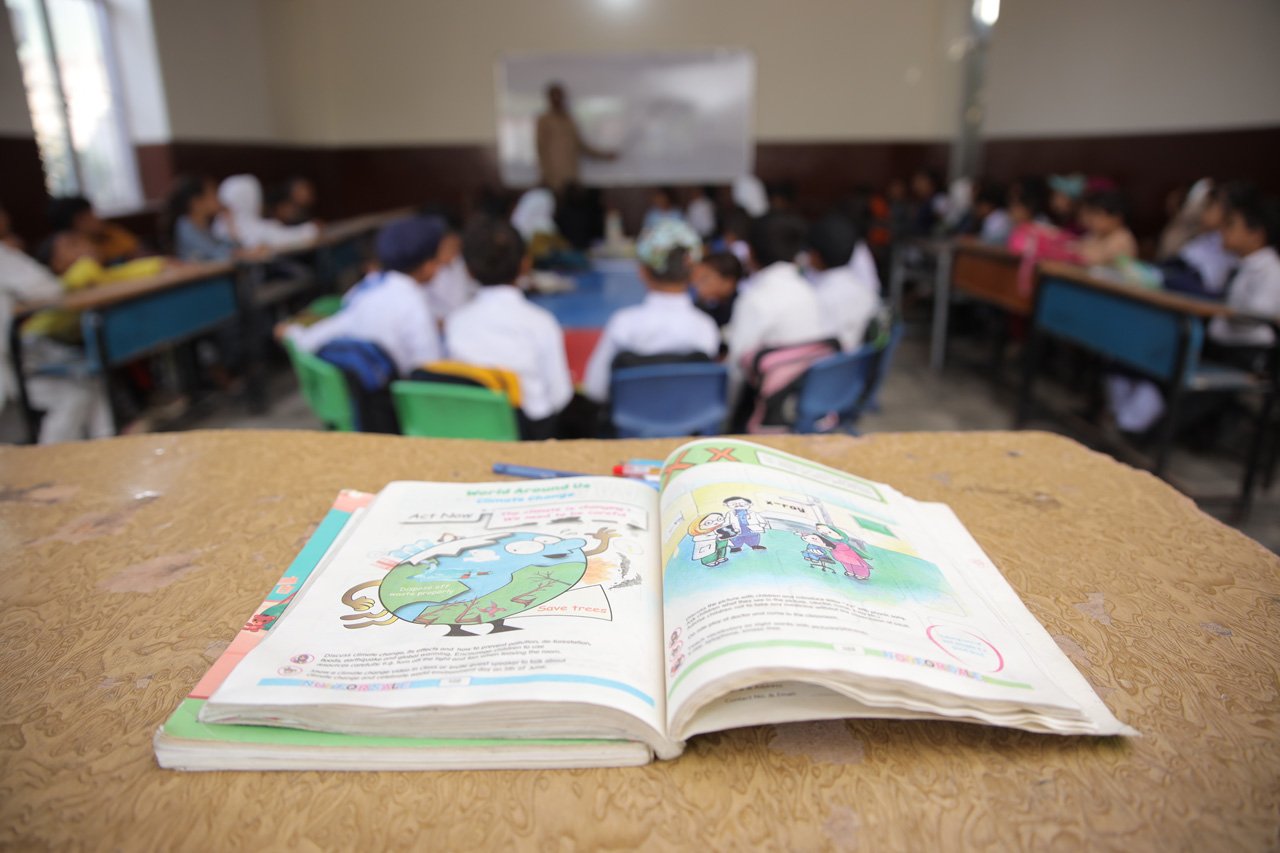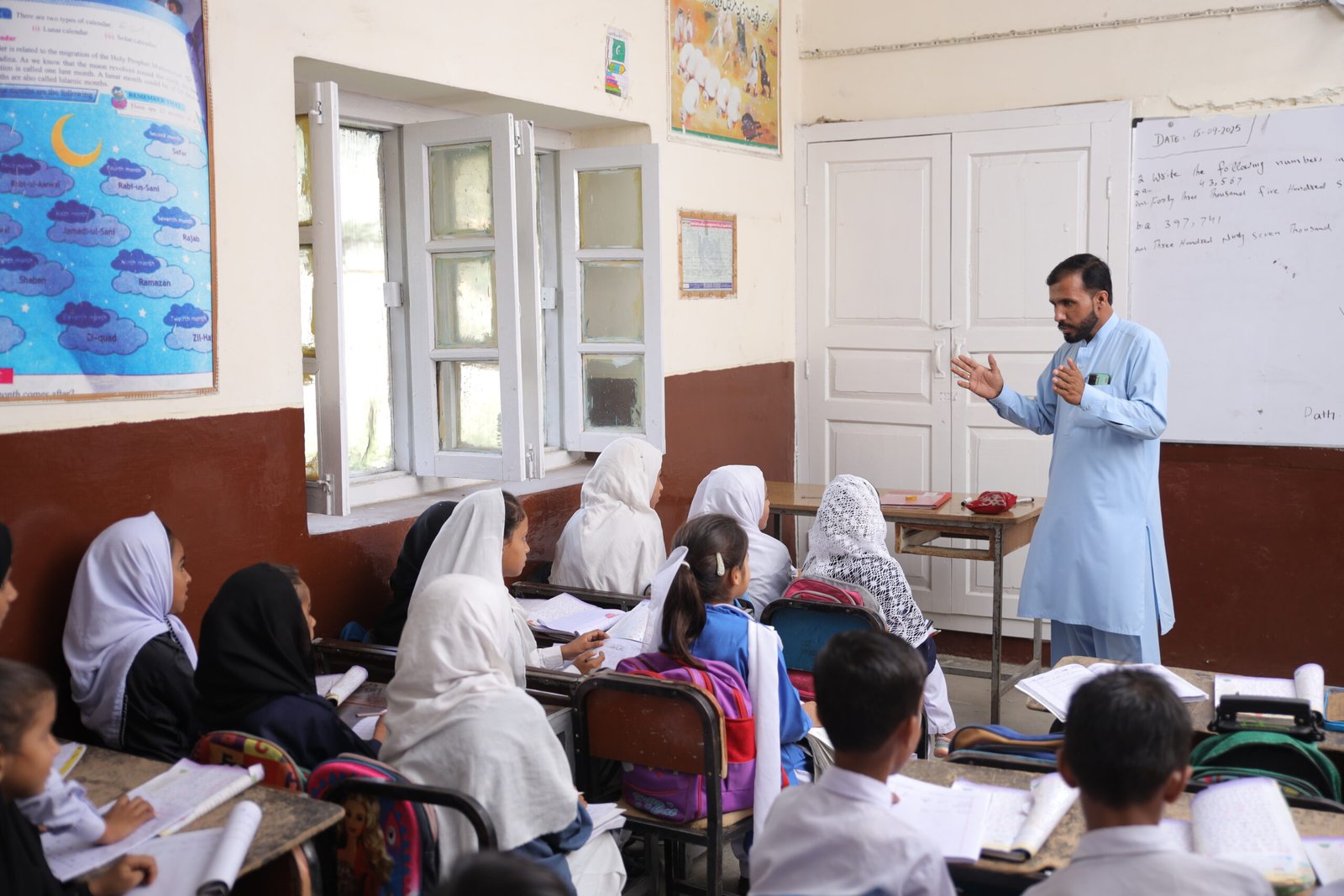This blog is based on the findings from the Individual Resource Paper (IRP) submitted by the author in completion of the NIMS Course – Cohort October 2024. The topics were provided by DARE-RC and the IRPs were reviewed by Dr Sahar Shah (Senior Research Manager, DARE-RC), as part of the DARE-RC capacity strengthening initiative.
Despite numerous initiatives, Pakistan’s education system continues to face serious challenges caused by political and economic instability, outdated curricula, gendered exclusion, and inadequate infrastructure. Overcoming these challenges is essential because education is the key driver of national development and the cornerstone of socio-economic progress.
I draw critical insights from my recent research paper, “Modernising Pakistan’s Education: Blueprint for Reforms”, submitted as my Independent Research Paper (IRP) towards the end of my course at the National Institute of Management Sciences (NIMS) in December 2024, to highlight crucial and actionable paths for progress.
Outdated Syllabi and the Theory-Practice Gap
According to the World Economic Forum, 23% of jobs are expected to change by 2027. It is also anticipated that 69 million new jobs will be created and 83 million will be eliminated by 2027. These shifts demand rethinking about how we should prepare our students, not just theoretically, but also practically. In Pakistan, there is a significant divide between academic training and practical workforce requirements. Many universities in Pakistan still follow old curricula with very little focus on hands-on learning coupled with a significant gap in structural equity. There is also inadequate practical exposure to critical thinking and problem-solving skills. Very few universities give internship opportunities to students although the need for experiential learning enhances students’ likelihood of getting employed in the future after completing their education.
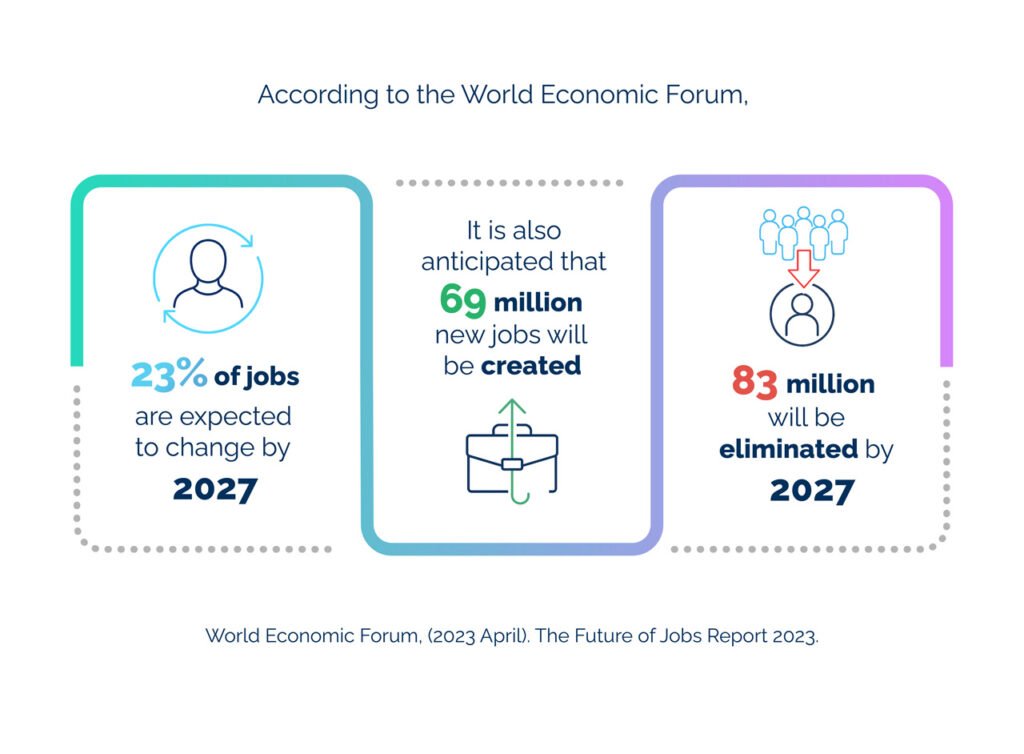
Although the country has shown some progress towards aligning with international standards, fundamental gaps persist prominently. For instance, students of Computer Studies or Computer Science do not apply their programming skills in practical scenarios, there is no proper training, and even basic software is unavailable or pirated. This gap between academic theory and its real-world application continues to deter actual modernisation.
Hands-on-learning refers to learning by doing and to enabling students to actively engage in practical activities instead of simply reading and listening to theory or to engaging in route-learning. Students are encouraged to perform experiments and simulate scenarios or work on projects and apply their learnings to practice.
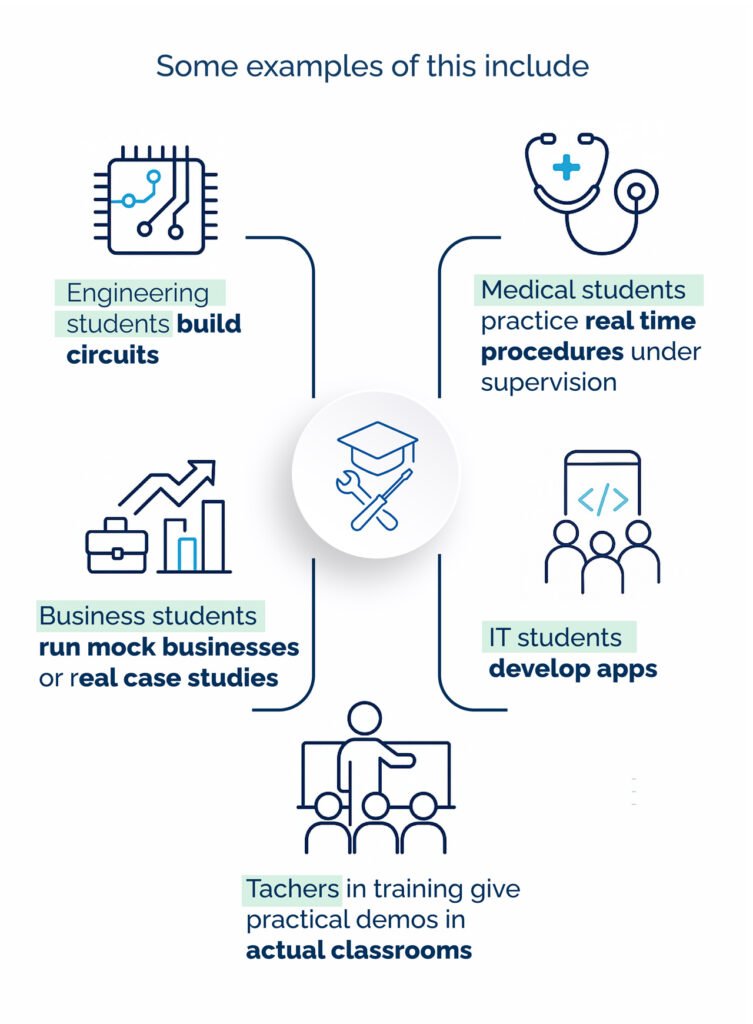
Inculcating this approach is important to improve comprehension, understanding and retention and to develop creative thinking skills and ultimately prepare the students for real world challenges.
Gender Discrepancies and the Urgent Need for Inclusivity
Educating women not only empowers them individually but is vital for the prosperity of households and communities. An informed woman is a strong woman, and an educated woman is a catalyst for social change. Empowering women through education would elevate families, communities, and the whole nation.
In Pakistan, the gender gap in access to higher levels of education is quite alarming, hampering both national progress and social development. In many regions, female education is given less priority, especially in rural areas, security-vulnerable regions, and conservative communities. This trend is especially visible in remote areas in Balochistan, interior Sindh, and certain tribal districts of Khyber Pakhtunkhwa, specifically the Newly Merged Districts (ex-FATA). In such areas, early marriages are common, and parents give higher priority to the education of boys over that of girls for various economic, social, and cultural reasons. Therefore, girls have limited access to schools, leading to depreciated opportunities to advance to higher education.
Some methods to improve girls’ and women’s access is to launch targeted scholarships and stipends for female students, run awareness campaigns, and engage with media, religious leaders and communities to shift perspectives on the value of education for girls and women. Campuses should be made safer and secure in line with the needs of female students, especially in remote regions, to curb concerns for security by family and community members.
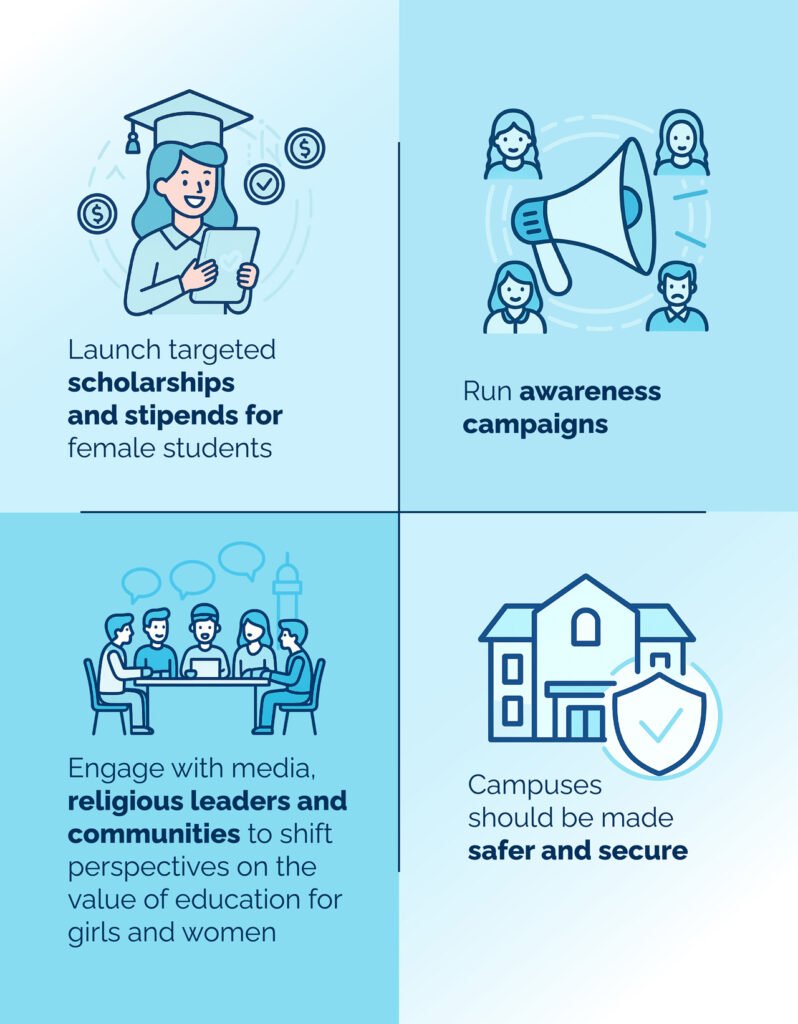
Access is only the first step, not the only one. Quality of learning and guidance for female students is equally crucial to ensure Pakistani girls and women are equipped with the most relevant knowledge and skills to compete in the employment market. Pakistan has a dearth of all-encompassing learning environments and mentorship for female students. This is coupled with limited representation of women in academic leadership. Female students could also significantly benefit from career counselling programmes focused on young women which possess an informed understanding of their obstacles and ambitions.
A Need for Action, Reform Through Innovation
Incorporating capstone projects, student internship opportunities, and real-time data analysis into curricula is a serious need of the time because the 21st century job market is rapidly evolving. Modernising education in Pakistan must go beyond policy drafts and new slogans; it must reform deeply entrenched systems bylistening to students and educators, especially girls and women, andenable them to acquire new and relevant skills and attitudes.
The path to modernising education in Pakistan is grounded in inclusivity, fostering innovation, and ensuring effective policy implementation. It is also important that introducing reforms in the curricula, improving the infrastructure, empowering women and promoting hands-on learning must not be the only policy goals, rather they are dire requirements to allow us to work upwards. If we want to equip young Pakistanis to be prepared for the challenges of the 21st century and improve social and economic conditions, it is necessary for the education system to move beyond traditional norms and unmet commitments. It is time to act, as dormancy will cost us far more than the challenges of reform.
Author: Ghazala Anbreen is a senior civil servant from the Information Group based in Islamabad, Pakistan, with wide experience in education, public diplomacy, and policy reform.
Editor and Quality Assurance: Dr Sahar Shah (Senior Research Manager, DARE-RC)
Copy-Editor: Maryam Beg Mirza (Assistant Consultant, Education at OPM)
Design: Sparkom Media
The views expressed in this blog are that of the author and do not reflect the views of DARE-RC, the FCDO, and implementing partners.


